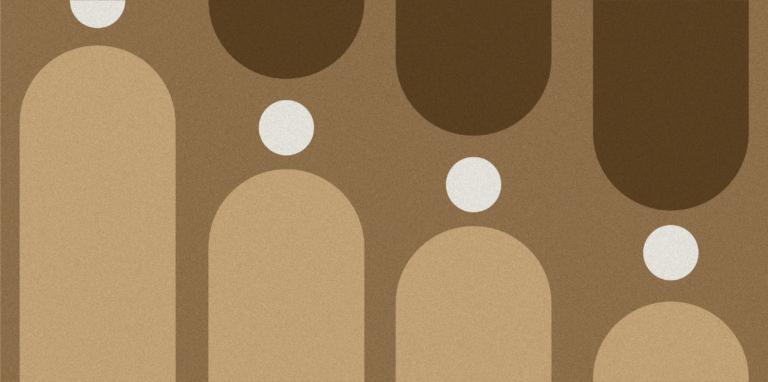Setting the Scene
With Krista
We begin at the foothills of the Himalayas, with a wondrous cross-section of young “compassionate leaders” preparing to meet one of the world’s great spiritual teachers. So: what is “compassion”? And can it possibly be pragmatic and mighty enough to meet our world now?
Question to Live
Do I have a working definition of compassion? What associations come readily to mind? |
Integration Step
Critically Investigate CompassionWe’re going to treat compassion (alongside some kindred virtues and capacities) as something serious — that is to say, something that can withstand tension and conflict and critical interrogation. Settle in by opening a journal and/or starting a conversation with someone in your life, asking them to be a conversation partner and sounding board as you walk through this retreat. |

Transcript
I am in Dharamsala, India at the foothills of the Himalayan Mountains, and I’m very surprised to be here. This was an invitation that came in 2020 from some people organizing an event hosted by the Dalai Lama. This is where his residence in exile has been. Here we are having a conversation about compassionate leadership — at this point — in a world that has changed, with people who have changed. The cells of our body, the cells and the structure of our societies have been shaken up and rearranged and continue to keep rearranging.
They asked me to just provide a few lines about why I wanted to be at this gathering. I looked at it again this morning and thought I might share it here because I talked about how excited I was to be, at this moment in time, in a gathering that would be at once contemplative and pragmatic and mighty. I realize, as I look back at that, that those are capacities and really ways of being and qualities that are not only not — words that are not only not used in the same sentence often, but qualities that might be considered not compatible. But they all come together in how I understand the deepest meaning and workings of compassion: pragmatic, contemplative, and mighty.
Of course, it can be mistaken for soft compassion, for inspiring, but maybe not considered to be especially affectual. Yet, consider that when the ground shook beneath all of our feet all at once in 2020 and a virus reminded us that civilization is built on something as tender as bodies breathing in proximity to other bodies, we had to ask collectively with urgency: what is essential and what is non-essential? Everything that we deemed to be essential, every profession, contained some manifestation of the giving of care.
And of course that question — what is essential and what is non-essential? — it was asked in an extremely practical way, but it’s also a profoundly spiritual question. It’s a question about values. As we made that assessment we were also given to see in those months, those years of emergency, that caring professions — which we needed — are also not the people and the professions that we most richly reward. In my mind, this realization becomes calling, something we have to continue to work with and live into.
It is in that context that I pick up this language of compassionate leadership — what can that possibly mean? And yet, how can compassion and compassionate leadership not be absolutely essential for us to rise to every existential calling that is now so clearly before our species? Ecological, racial, economic, and spiritual in the most expansive sense of that word.
There are teachers here at this gathering in this place who have brought home to me how compassion looks when it is lived and embodied and at once thoughtful, contemplative, but also mighty and pragmatic — and is something that shifts the world, and that shifts lives, and that ripples through time, and that ripples through societies.
Several people here who’ve been guests on On Being — one of the leaders of this is the neuroscientist Richie Davidson. He’s the neuroscientist who the Dalai Lama reached out to in the 1990s and asked him to study the brains of him and his meditating monks because he believed that the spiritual practice they engage in changed them — changed them at a physical level. It turned out to be true — when Richie took them into his brain imaging laboratory at the University of Wisconsin, Madison. That insight just hastened the field of neuroplasticity — things we now understand about the brain altogether, not just in meditating monks, that are changing how we understand how our humanity continues to evolve and can continue to be shaped across the lifetime.
I think of Richie in a room with me a couple of years ago, a room full of educators, teachers, administrators, curriculum writers, and him stating — as a matter of fact, as something that we all know, but that science is now our friend in naming and taking seriously — that when we are raising young people, young human beings in school, if we tend to what we fill their minds with, but not to helping them develop capacities of love and kindness — if we don’t show those things to them — that is also a way that we are pulling back from shaping the human capacity of the lives they will lead, the world they will participate in, and the world they will make.
That’s all in the kind of ecosystem of compassion. Roshi Joan Halifax is here, too. She’s also been on the show. She started her life as a medical anthropologist — she’s worked with end of life, being a midwife to the dying for decades. She talked to me this morning about — and I found this so helpful, because when I said, you know, the word is kind of squishy and it does get a little bit fuzzy when you try to talk about compassion or define it. She said, “you know, compassion is not a thing. It’s not something you can define or point out. Compassion, in every instance that it’s exercised, is adaptive, it’s interactive, it is emergent in a given situation. In that moment — in your response to it — compassion is revealed to be what it is in that case.”
Roshi Joan says she doesn’t believe there’s such a thing as compassion fatigue, that we become incapable of compassion, but rather, that our hearts become too full of empathy that doesn’t serve us and doesn’t serve the world.
This is a big subject that I can’t cover here, but one implication of what I just said — what she’s taught me, which is also taught in the great traditions — is that for compassion to be vital and alive and sustainable, part of the move we have to learn to make is an inward move: that we also have to extend compassion to ourselves.
We’re also here — and this is what brings us home for me because I don’t want to talk about compassionate leadership just as something that the likes of the Dalai Lama and Roshi Joan Halifax and a great neuroscientist can do — because this gathering actually is centered around a group of young people from many countries and many backgrounds. And as vividly as any gathering I’ve been in, they are such a vivid collection of humanity that reminds me how beautiful we can be, what ingenuity we have — and also is such a concentration of the desire to be of service that I see alive in new generations, the willingness of new generations to look unflinchingly at the magnitude of what is before us and dig in right where they are to do what they can to be of service.
I’m going to close there. This whole gathering is cross-generational, which also just feels to me like one of the core values and core features of how we have to walk into this world in which we have so much to make and so much to learn — where there is such an abundance of possibility for both of those things.
What that means — what that cross-generational thing means to me — is that I’m here supposedly as a mentor to these young people who are fellows, but it’s very clear to me and to Richie and to Roshie Joan — and probably to the Dalai Lama when we get to him — that the teaching here and the wisdom is going in every direction.
I’ll be back with some more stories soon.
